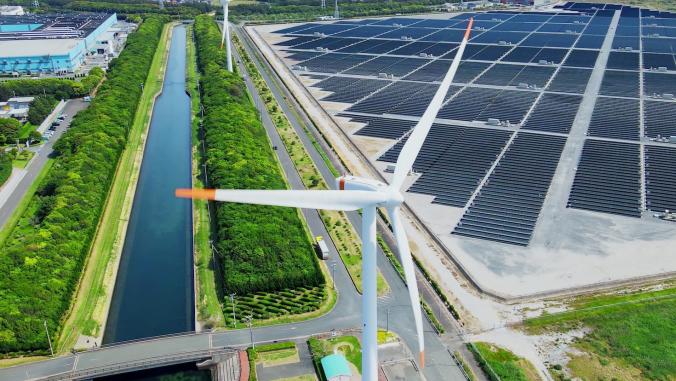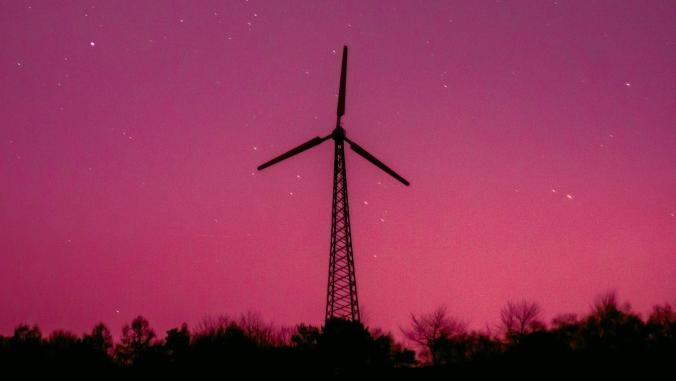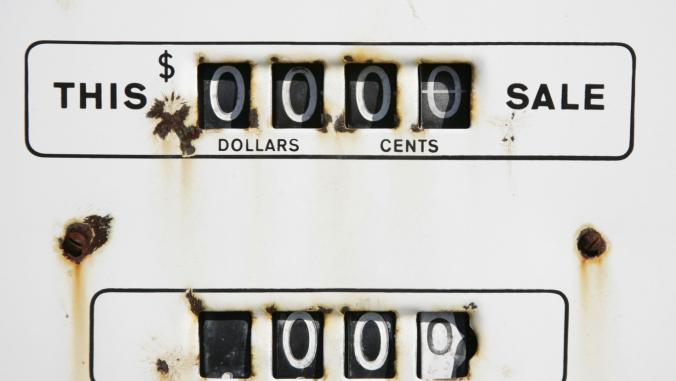Virgin CEO Josh Bayliss: 'Every one of us should think hard about whether we need to take a flight'
Boss of multibillion dollar brand, which holds a stake in Virgin Atlantic, reflects on how corporates should respond to consumer outcry over climate change.

Josh Bayliss, Virgin Group CEO | Credit: Virgin Group
There has scarcely been a more a precarious time to operate a globally recognizable brand. Consumer awareness of ethical and environmental issues is higher than ever, bringing with it far loftier expectations for the products and services people spend their money on.
The result is that running a business can be akin to the hazard perception element of a driving test, with executives forced to plan carefully in advance for the next "Blue Planet II" plastic waste outcry, or predict how widely a consumer trend such as plant-based diets might end up spreading.
So, for a multi-billion dollar consumer-facing company such as the Virgin Group, which holds investments traversing a variety of markets and industries, the stakes of potentially tarnishing the sheen for its brand could scarcely be higher.
Co-founder Sir Richard Branson certainly talks the talk when it comes to sustainability and climate action, having set an ambitious goal for Virgin to reach net zero greenhouse gas emissions by 2050 "or ideally a lot earlier" and to "push our companies to become leading examples of action on climate — even our top emitters."
And Josh Bayliss, the company's CEO, is acutely aware of the pressure of meeting consumer expectations. "We're driven first and foremost by our brand, and by what people think of our brand — both our customers and employees," he tells us. "And for us, that brand has got to be driven by purpose in order to really ensure that we're talking the right language to people. So it's got to be something that engages with them. And that means we've got to think about the issues that face communities we're a part of, and we've got to think about our role in relation to the environment."
Bayliss, a New Zealander, has been with Virgin since 2005 working across a number of companies within the stable, which no doubt helped impress on him the power of the firm's brand. A qualified solicitor, he went on to serve as the company's general counsel before rising to CEO in 2011, a role which gives him overall responsibility for the group's capital investments and, of course, stewardship of the Virgin brand. Like Branson, he is vocal about the urgent threat posed by climate change, and the key role that business can play in tackling it.We're driven first and foremost by our brand, and by what people think of our brand — both our customers and employees.
"My honors paper at university in 1994 was on sustainability, and even then it was clear to me that humankind needed to change its behavior patterns," he explains. "The fact that my own children, who are teenagers, are saying, 'Why aren't your generation and generations before doing more to bring this change about?' — the fact that this is now out on the streets is no surprise to me at all. And I think it is incumbent upon us, in partnership with governments and civil society, as businesses, to do more."
Pressure on brands to prove their environmental credentials has ratcheted up several notches since the start of the year. Led by Greta Thunberg, school students the world over — who are, lest we forget, future consumers and employees — have been out on strike decrying inaction on climate change, while Extinction Rebellion protestors garnered high levels of support and media traction as they brought parts of London to a halt last month. The world's most respected broadcaster, Sir David Attenborough, also has been spreading the word about climate and ecological collapse with renewed vigor while leading national banks around the world are sounding the same alarm for businesses and the financial sector.
In that context, how does a multinational company such as Virgin respond to such public outcry? Is there now a need for Virgin to set the bar even higher when it comes to its green ambitions?
"I don't think the fundamental purpose needs to change," Bayliss counters. "What we're trying to do is ensure every element of the Virgin Group is moving in lockstep towards net zero, because for us that's a must-do. We were here in 2015 when the Paris Agreement was signed, and we were very much part of the movement that said business needed to be at the center with civil society and government in bringing about the positive change that has to happen for us to get to a net zero result and ensure we don't see the worst effects of climate change."Is there now a need for Virgin to set the bar even higher when it comes to its green ambitions?
Bayliss is sitting with us ahead of the Paris leg of the Formula E electric racing championship, a race which the Virgin Racing team would go on to win. Just a few days later, the Committee on Climate Change would urge the United Kingdom to set a target to reach net zero greenhouse gas emissions by 2050 across every sector of the economy. A target that includes aviation, which accounts for one of the most recognizable parts of the Virgin empire.
Critics might point out a disparity between the company taking part in a global sporting event which markets itself as "The Race Against Climate Change" while also holding a 20 percent stake in Virgin Atlantic, an international airline and therefore a significant greenhouse gas emitter.
Bayliss, though, is open about the challenge of decarbonizing Virgin's aviation businesses, and remains adamant the company is capable of achieving net zero emissions within the next 20-30 years. "Yes, absolutely, that's clearly the objective," he insists.
"The context for this, of course, is that aviation is an enabler and has been a force for good in the world, leaving aside its environmental footprint," he adds. "And while it's only a very small part of the problem, it is actually a very large part in terms of each individual consumer. So we are determined to try to fix that."
To that end, he highlights efforts to ensure the Virgin Atlantic fleet boasts the youngest and most efficient aircraft, as well as moves to train pilots in more efficient flying methods and encourage the use of low carbon vehicles to ferry planes around on the ground.Aviation is an enabler and has been a force for good in the world, leaving aside its environmental footprint.
But most important, "we've got to change the fuel," Bayliss admits. "We've got to move towards a more sustainable and renewable source of fuel."
Virgin Atlantic recently flew a plane from Orlando, Florida, to London Gatwick using traditional, high carbon jet fuel mixed with a small proportion of biofuel produced by recycling waste industrial gases from steel making and other heavy industrial processes. LanzaTech, the company behind the ethanol fuel, claims it can deliver 70 percent life cycle carbon savings compared to traditional jet fuel, and if costs come down could help significantly reduce the carbon impact of long haul flight. In addition, Virgin Group has invested in Agilyx, a company which produces synthetic aviation fuel made from waste plastics, and by the end of next year plans to supply up to 2,500 barrels per day to the aviation industry from its plant in the United States.
These initiatives alone are clearly not enough to eliminate greenhouse gas emissions from Virgin Atlantic's fleet, let alone the wider aviation sector, any time soon. But Bayliss argues that, even under the framework of the international CORSIA agreement — which aims to reduce aviation emissions by 50 percent by 2050 — net zero flight can become a reality by the middle of the century, if the right government policy levers are put in place, including effective carbon pricing.
"As I said, we've got these two companies, Agilyx and LanzaTech — one's an investment and one's a partnership — and they both work, but they just both need to be given the opportunity to scale up," he says. "In order for that to happen, we need to make sure that governments are working in sync with business to provide the right incentives and frameworks for them to bring these products to market."
Until low carbon aviation fuels become widely viable, he concedes behavior change — a.k.a. flying less — may have a part to play in limiting the impact of aviation on the climate.
"If we can get to a renewable fuel driven industry, there is no reason why growth can't continue or even increase, but it's definitely true that right now every one of us should think hard about whether or not we need to take a flight," Bayliss says. "And if we do, then of course you want to try and do it as efficiently as you can, but the truth is that you are burning jet fuel. So, do I really need to travel? If so, how am I going to go about doing that?"Until low carbon aviation fuels become widely viable, he concedes behavior change — a.k.a. flying less — may have a part to play in limiting the impact of aviation on the climate.
On the one hand, it is a remarkably frank assessment from the head of a business with a major stake in an airline, even if Bayliss is quick to add that he envisages renewable fuels being "an integral part of what we do" after 2030. Yet it is also redolent of the precarious consumer climate the business world finds itself in, following sizeable shifts in the climate conversation over the past year that has seen criticism of carbon-intensive businesses escalate.
There are two sides to that consumer pressure, Bayliss counters. For while our economic model does not properly price in the cost of emitting carbon and the resulting environmental damage, at the same time recent efforts to remedy that — such as the French fuel tax which spurred the "Gilet Jaune" movement — have angered many consumers.
"And quite rightly so, because they're the ones who are bearing the cost," he says. Putting a price on carbon at the production end, not the consumer end, is therefore "going to be essential to ensuring we are encouraging the next generation of technologies, including not just fuels but also things like direct air capture of carbon, where we could in fact reduce the concentration of carbon and other greenhouse gases in the environment," Bayliss argues.
Keeping all consumers on board with climate action while holding on to their custom amid shifting behaviors and trends would be a tall order for any brand, yet it is a tightrope which Virgin and nearly all companies with high carbon interests are having to try to master.
Virgin may have a long journey ahead if its airline is to deliver zero emission flight, but it also has staked its reputation on getting there, and given the current climate that could turn out to be a very rewarding bet indeed.
"We are absolutely listening to the message, and we are not surprised by the message," Bayliss says of the recent rise in climate protests. "We hope that the message will ensure others will join the direction of travel that we are hoping we're on, and that we are going to achieve the objective of limiting the effects of climate change."
This story first appeared on:





